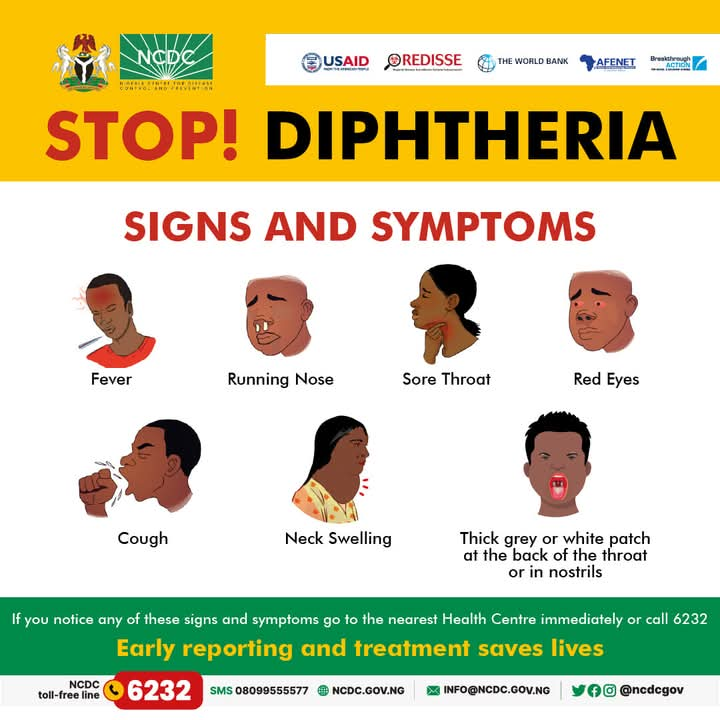At least two persons have died from complications linked to diphtheria at the University of Benin Teaching Hospital (UBTH), Ugbowo, Edo State, amid growing concerns over a nationwide shortage of lifesaving antitoxins.
Health sources confirmed on Tuesday that the victims, whose identities remain undisclosed, were among five patients who presented with advanced symptoms of the highly infectious disease.
As a result of the outbreak, the Edo State Commissioner for Health, Dr. Cyril Oshiomhole had summoned an emergency meeting among heads of Health institutions in the state including World Health Organization and United Nations Children Fund (UNICEF) where quick response team was activated to commenced free treatment.
The meeting was sequel to report from the UBTH confirming five cases of Diphtheria including two death.
According to Oshiomhole, ” Diphtheria is vaccine preventable diseases and it resurgence in our state raises concern about immunisation gap, surveillance lapses and public health awareness. These cases are not just numbers they represent real family, real loss and danger to communities. If they are left unchecked.
“We cannot afford to be reactive, we must act swiftly and collaboratively. The ministry have activated response team and commenced free treatment. Residence are advice to ensure that children are fully immunized.
The Public Relation officer of University of Benin Teaching Hospital, (UBTH), Joshua Uwaila who confirmed the outbreak could not ascertained the numbers in term of death.
“There is a resurgence of the Diphtheria and that is why our public health nurses are out to enlightened the public and out doctors are also on radio to create public awareness as well”. He added.
Diphtheria, caused by the Corynebacterium diphtheriae bacterium, spreads through respiratory droplets or direct contact with infected individuals. If left untreated, it can result in severe respiratory complications, heart failure, paralysis, and death.
Nigeria continues to face major challenges in combating the disease—including low routine immunization coverage, delayed case confirmation, and insufficient healthcare infrastructure.
While vaccination remains the most effective preventive measure, health workers say the shortage of diphtheria antitoxin represents a critical gap in Nigeria’s outbreak response.
Public health advocates are urging the federal government and international partners to act swiftly to secure and distribute adequate medical supplies.
As of March 2025, the Nigeria Centre for Disease Control and Prevention (NCDC) reported 1,319 diphtheria-related deaths from 25,812 confirmed cases since the beginning of the outbreak in 2022—representing a case fatality rate (CFR) of 5.1%, or approximately one in every 20 confirmed cases.
With fatalities rising and key treatment options in short supply, public health officials warn that without decisive and immediate intervention, Nigeria could face one of its worst diphtheria outbreaks in decades.
